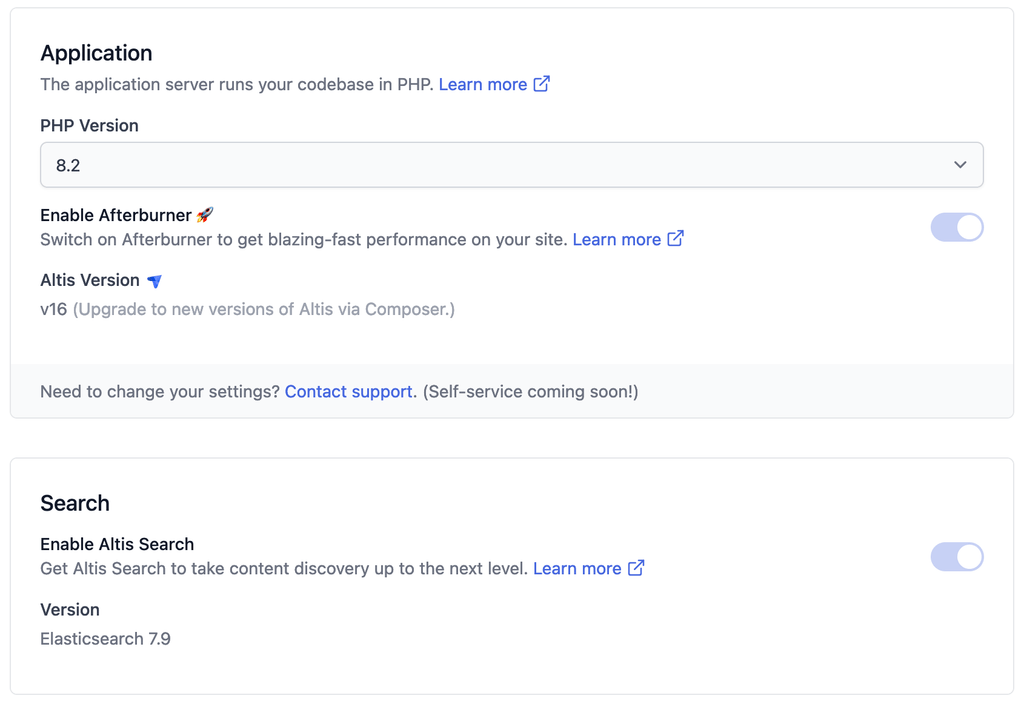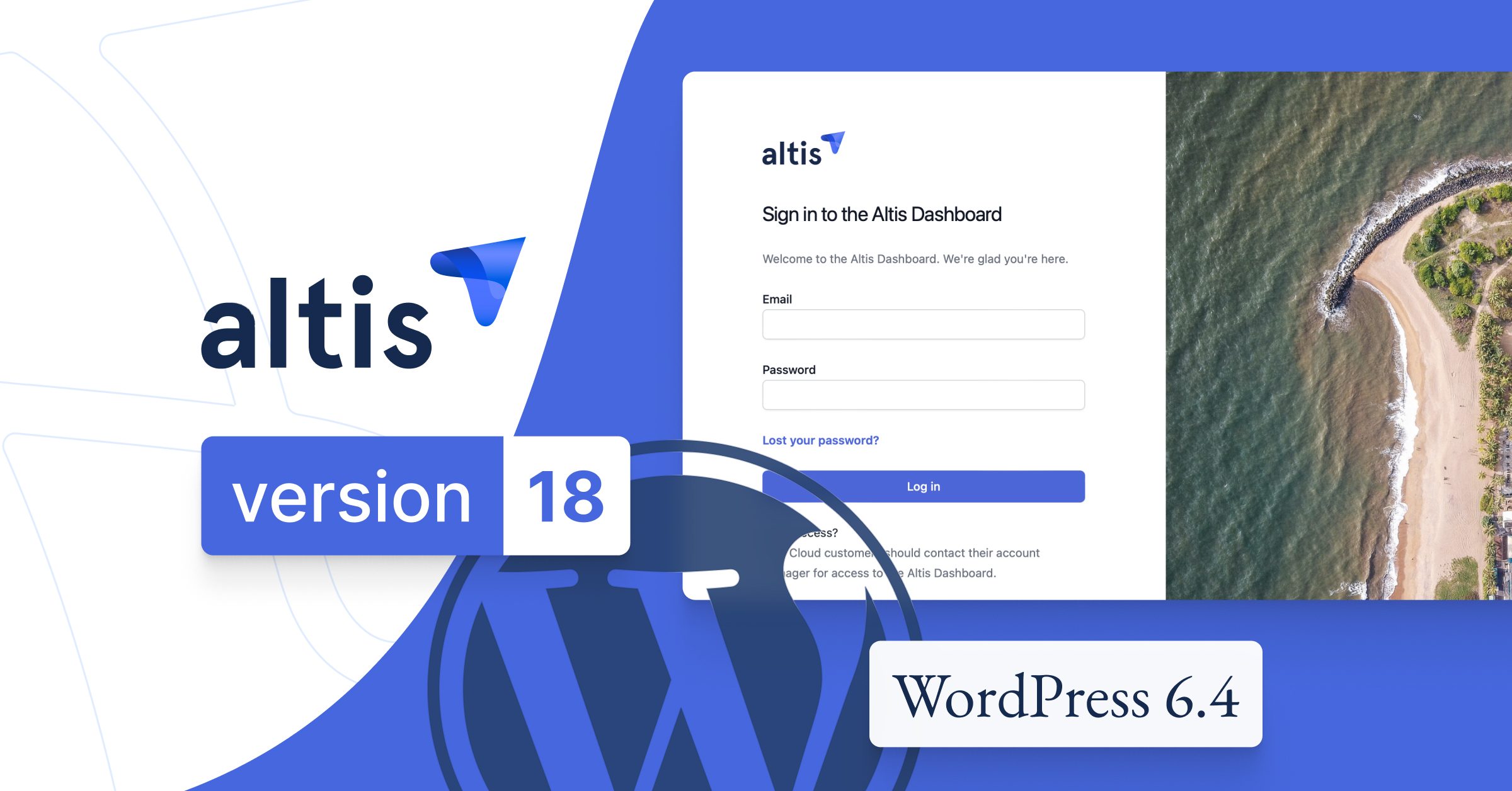Altis Cloud v18 is here! In this release, we’ve upgraded to WordPress 6.4, given you more visibility in the Altis Dashboard, and made some significant background changes – let’s dive in.
WordPress 6.4
This WordPress release, named ‘Shirley‘, includes bug fixes, a range of new features, and a new default theme – the block editor alone has more than 1400 updates, so it’s not to be missed!
- Block Hooks
- Improvements to object caching
- New options functions
- Revisions are now supported for post meta on an opt-in basis
- Pattern personalization and customization
- Command palette updates
- Image block updates: lightbox and aspect ratio tool
- Template loading enhancements
As well as 100+ improvements in performance, accessibility updates, and modernized code and coding standards, there’s also an important security fix.
Check out the WordPress 6.4 Field Guide for more information. As always, we’ve also prepared an Altis v18 upgrade guide which covers backwards compatibility breaks, including those in WordPress 6.4.
Improving visibility in the Altis Dashboard
We’re always working on making more details and options available to customers through the self-service Altis Dashboard. We’ve now added an Environment settings screen to show you more of your configuration, including PHP version, Afterburner configuration, and Elasticsearch.

In the process, we’ve cleaned up some clutter by moving our internal details to this screen, and made your PHP version immediately visible at a glance in the header.
Meanwhile, we’ve also improved how some email sending errors are displayed to make it clearer how to fix them, as well as refreshing our login screen with some beautiful new photos.
Behind the scenes: Scalr migration
We use a tool called Terraform to provision infrastructure and manage changes to customer environments, using a pattern known as Infrastructure-as-Code (IaC). This allows us to use development workflows like pull requests and review processes for managing servers – Altis wouldn’t be possible without it.
Unfortunately, Hashicorp has decided to change Terraform’s license, meaning it is no longer open source. At the same time, they also increased their Terraform Cloud service pricing dramatically, to a level which is unsustainable for our usage.
We’re strong believers in open source – all of our modules and plugins are available on GitHub right now, under the GPL – so this was concerning news to us. Thankfully, community efforts have sprung up around OpenTofu, a fork of Terraform under the Linux Foundation’s umbrella.
Over the final weeks of December, we moved our internal systems and integrations from Terraform Cloud to Scalr, one of the key companies behind the OpenTofu effort. We completed this migration with no impact to customers – Scalr made the transition incredibly straightforward with their fantastic support, great documentation, and rock-solid product.
What’s next?
We’ve got some exciting announcements coming very soon, with a brand new major feature on the horizon. Watch this space for more details! (If you’re already a customer, check the Roadmap page in the Altis Dashboard for some hints 😉)
With v18’s release, we’ll be saying goodbye to Altis v14, which moves to end-of-life on February 27th. If you haven’t already, now’s the time to upgrade to take advantage of great new features like PHP 8.2 support and Afterburner.
Work never stops here at Altis, with effort already underway on v19. We’re aiming to release v19 in April in line with our quarterly release policy – set your watches!

